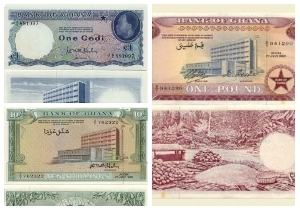The National Service programme is a compulsory one-year service required of all citizens of Ghana who are 18 years and above and have completed tertiary courses, at the time of deployment. The Scheme which started in 1973 now operates under Act 426 (of 1980). The objectives of the Scheme are to:
Encourage the spirit of national service among ALL segments of Ghanaian society in the effort of nation-building through active participation.
Undertake projects designed to combat hunger, illiteracy, disease, and unemployment in Ghana.
Help provide essential services and amenities, particularly in towns and villages of the rural areas of Ghana.
Develop skilled manpower through practical training.
Promote national unity and strengthen the bonds of common citizenship among Ghanaians.
“Service to the Nation” is its mantra which is heralded by all as the future of our nation greatly depends on it. It’s been five months since the 2022/2023-year national service period began. The big question still unanswered is the fate of some personnel posted as “NSS Accounting Aid” who are comfortably at home and have not been called to post by their various National service secretariats.
Are they eligible for payment?
Personnel posted to NSS Accounting Aid have already received their November, December and January allowances for no work done. In the filling of their evaluation forms, I quiz what their supervisors tick with regards to the punctuality of personnel, attitude towards work and what was their number of days at the post.
Are they eligible for certification?
'A service person shall be issued with a certificate of national service after the successful completion of the service'. Are these personnel going to receive certificates at the end of the service period, or they would have their periods extended for no faults of theirs?
Pragmatic measures must be put in place as these young ones have the energy to help boost production in Ghana’s agricultural sector (planting for food and jobs), manufacturing sector (one district, one factory), and service sectors (teaching and healthcare assistantships).
Opinions of Monday, 3 April 2023
Columnist: Emmanuel Kwasi Agyepong



















